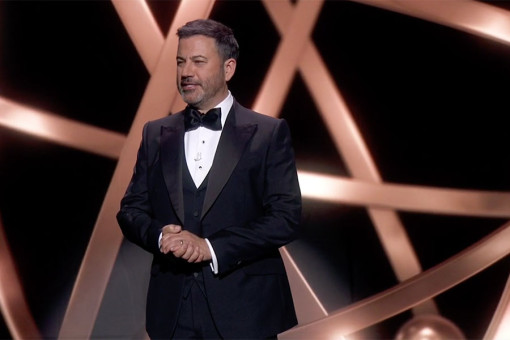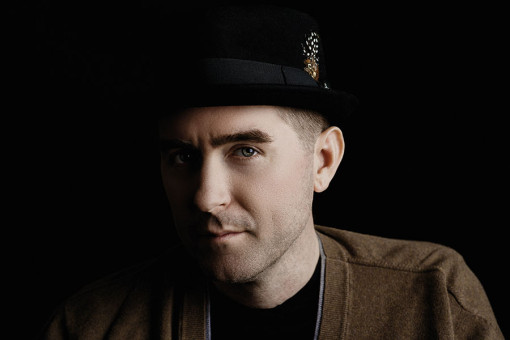Race is the reason the much-acclaimed series The Wire didn't have a higher profile; so said David Simon in this 2006 interview for emmy magazine, conducted during the show's fourth season.
The series, which examined crime and decaying institutions in Baltimore — where Simon was a journalist and author before his career in television — premiered on June 2, 2002, and ran for five seasons. And while the TV landscape has vastly changed in the last twenty years, the show's cast is still notable for its diversity.
The call sheet included performers Lance Reddick, Sonja Sohn, Wendell Pierce, Seth Gilliam, Clarke Peters, Idris Elba and Michael K. Williams, who at the end of his career was still best known for his role as stickup man Omar Little.
Like The Shield, which premiered just a few months earlier on FX, HBO's The Wire was part of the wave of cable programming that drove viewers to antihero protagonists and gritty dramas that couldn't be found on network television.
The seminal series was nominated for two Emmys — for outstanding writing for a drama series in 2005 and 2008. Although it never captured a win, The Wire continues to appear on "best of" lists and is credited with propelling the careers of Dominic West and Michael B. Jordan, to name just two.
"I'm not concerned with having a hit show," said Simon. "If I'm trying to have a hit show, no one could have a more ridiculous plan than The Wire."
In its fourth season, The Wire is garnering what creator-executive producer David Simon calls "the best reviews of my career."
Indeed. In Entertainment Weekly, Gillian Flynn called The Wire "the best series on TV. Period."
In the Chicago Tribune, Maureen Ryan advised, "If you have only one hour a week for television, give it to The Wire.... It's a masterpiece."
And in Variety, Brian Lowry declared: "When television history is written, little else will rival The Wire, a series of such extraordinary depth and ambition that it is, perhaps, inevitably, savored only by an appreciative few."
Set in Baltimore, The Wire wrestles with America's urban nightmare: drugs and unemployment, the challenges for government and schools. Is its serious nature the reason this drama continues to fly under the Hollywood radar?
Part of the reason, says Simon, is locale. "We don't hang out at the commissary. We don't walk across the Fox lot. We're in Baltimore, and the industry doesn't acknowledge to any serious degree that we're making television."
But what really stands between The Wire and water-cooler status is something Simon, a former crime reporter for the Baltimore Sun, calls "the 800-pound gorilla": race.
"Our cast is predominantly African American," he says, "and there are a number of viewers who won't go there. I don't think the show is darker than The Sopranos. I don't think the show is any more complex than 24 or Deadwood. I don't think the dialogue is more dense.
"Human empathy has its limits. People turn on the television and see that many black faces and they say, 'This is not my story — it's someone else's story.' I think they're wrong. If they stuck around, they'd see this is their story, too.
This is not exactly déjà vu all over again for Simon. The NBC series Homicide: Life on the Street, based on a Simon book, also earned critical praise and lackluster ratings during its 1992–'99 run. But that was Tom Fontana and Barry Levinson's series — "their frustration more than mine," Simon says.
While ratings are not paramount to HBO, Simon acknowledges that to increase tune-in of The Wire, "I could dumb it down. I could make it simpler. I could shave off the cultural edges. The day I do that, I can't get writers like [George] Pelecanos, [Dennis] Lehane and [Richard] Price.
"There are an awful lot of things I can do," he goes on. "But they would not reflect Baltimore. They would not reflect the story I'm trying to tell. I'm not concerned with having a hit show. If I'm trying to have a hit show, no one could have a more ridiculous plan than The Wire."
That The Wire is even on the air — well, premium cable — is a reflection of what Simon calls "the Balkanization of what was monolithic TV. Most of the money made in television is not made by provoking people, by having any serious examination of who we are and what our issues are. There's not a lot of money in that."
While Simon believes television is probably better than ever, the mean remains the same. Counterbalancing the "idiosyncratic programming" is the plethora of "reality shows, which are virtually meaningless. How many cockroaches does one guy have to eat? I think the common denominator is where it used to be. The better is better, and the worse is worse."
This article originally appeared in emmy magazine issue #6, 2006, under the title, "A Higher Wire."
The Wire is available to stream on HBO Max.












